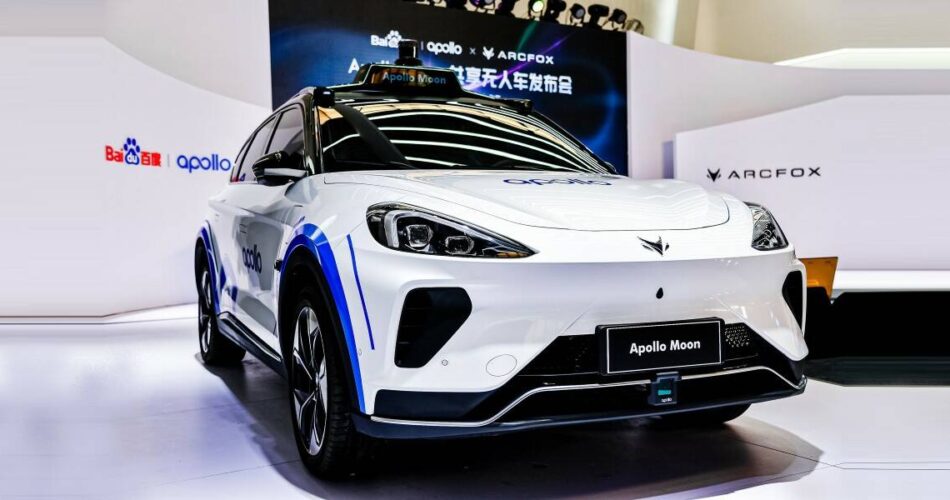Chinese web giant Baidu has revealed plans to introduce its autonomous taxi service to 65 cities by the year 2025, then add another 35 cities by 2030.
CEO and co-founder Robin Li revealed those targets on Tuesday during the company’s Q4 2021 earnings call – on which he also stated that Apollo Go autonomous taxi service provided 213,000 rides in the quarter, almost doubling patronage. The service offers Level Four autonomy, so can only operate without human control in geofenced areas. And the company still has “safety drivers” in some cities, to ensure timely interventions in the name of safety.
Li also revealed that Baidu has even started to charge for rides in its auto-taxis – albeit only in Beijing, Chongqing, and Yangquan.
Demand for computing power to run those taxis and other AI applications stood out in the company’s Q4 results. Revenue for the quarter reached $5.2 billion, up nine per cent year over year. Annual revenue of $19.5 billion was a 19 per cent jump. AI cloud revenue grew 60 per cent year-over-year in Q4, and 64 per cent for the full year, to land at $2.4 billion. That’s not a number that will frighten the likes of Microsoft or AWS, and is less than a quarter of local rival Alibaba’s annual cloud revenue.
But Li claimed Baidu’s cloud is outpacing rivals’ growth. Baidu also focuses its cloud on AI, rather than services such as IaaS that are harder to differentiate. It shares that strategy with another Chinese cloud giant, Tencent, which has chosen to focus on SaaS and PaaS rather than servers-for-hire.
On the earnings call, execs predicted further growth would flow from providing additional AI services to business and government customers with Baidu’s own “ACE Transportation Engine” – a mobility-as-a-service package aimed at municipal buyers – already doing well and tipped to grow faster still. Baidu also hopes to use AI to generate content that will appear in its flagship app and help to drive further e-commerce revenue.
No mention was made of matching rival Chinese clouds’ overseas expansion plans. Baidu AI has only two locations outside China – in Hong Kong and Singapore – whereas the likes of Alibaba and Tencent pursue customers in Asia and Europe. ®
Source link



